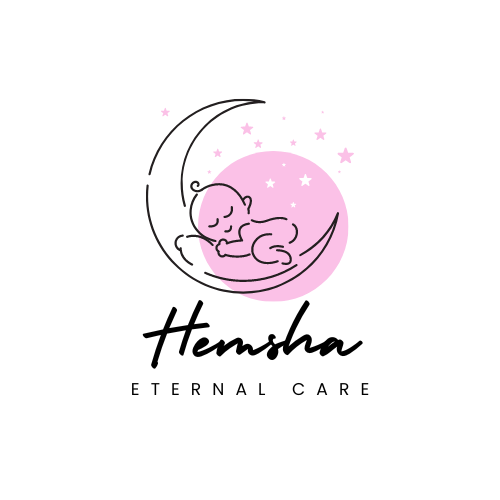The third trimester, spanning from weeks 28 to 40, is a time of profound change and anticipation. As you approach the final stretch of your pregnancy journey, this period brings a mix of physical adjustments, emotional ups and downs, and crucial preparations for the arrival of your baby. This article provides a caring and comprehensive guide to help you understand and navigate the final trimester with confidence and calm.
Baby’s Growth and Development
Rapid Growth:
During the third trimester, your baby undergoes significant growth and development. By the end of this period, your baby will likely be around 19-21 inches long and weigh between 5.5 to 8 pounds. Key developments include:
- Weeks 28-32: The baby’s organs mature, and they start to accumulate body fat, which helps regulate their body temperature after birth. Their brain and nervous system continue to develop, and they practice breathing movements.
- Weeks 33-36: The baby’s bones harden, and they may begin to settle into a head-down position in preparation for birth. Their movements become less frequent but stronger and more pronounced.
- Weeks 37-40: The baby is considered full-term by week 37. Their lungs mature, and they begin to coordinate their movements for birth. They also gain more weight and are preparing to make their grand entrance.
Key Milestones:
During this final stage, you’ll feel more pronounced movements and may notice your baby responding to external stimuli like light and sound. Their patterns of sleep and wakefulness become more regular as they get ready for life outside the womb.
Physical Changes and Symptoms
Body Adjustments:
As you near the end of your pregnancy, your body will experience a variety of physical changes, including:
- Increased Discomfort: Your growing belly can lead to increased pressure on your back, pelvis, and legs. This might cause discomfort and swelling, especially in your feet and ankles.
- Braxton Hicks Contractions: You may experience practice contractions, known as Braxton Hicks, which are generally irregular and help your body prepare for labor.
- Frequent Urination and Fatigue: As the baby grows and puts pressure on your bladder, you may find yourself needing to urinate more often. Fatigue can also increase as your body works harder to support your baby.
Managing Discomfort:
To alleviate discomfort, consider practicing relaxation techniques, maintaining a comfortable sleep environment, and using pillows for support. Gentle exercise, such as prenatal yoga or swimming, can also help with physical discomfort. Staying hydrated and elevating your legs can reduce swelling.
Emotional Well-being
Anticipation and Anxiety:
The final trimester can bring a mix of emotions. You may feel excited about meeting your baby, but also anxious about labor, delivery, and parenting. These feelings are normal and part of the journey.
Managing Stress:
To manage stress and anxiety, focus on self-care and relaxation. Practice deep breathing exercises, meditate, or engage in activities that help you feel calm. It’s also helpful to talk openly with your partner, family, or a trusted friend about your feelings.
Bonding with Your Baby:
As you approach your due date, take time to bond with your baby. Talk to them, sing, or play soothing music. This connection can be comforting for both you and your baby.
Prenatal Care and Preparation
Important Appointments and Tests:
During the third trimester, you’ll have several key appointments and tests to monitor your health and your baby’s well-being:
- Routine Check-Ups: Regular check-ups will include measuring your belly, monitoring the baby’s heartbeat, and checking for any signs of complications. Your healthcare provider will also discuss your birth plan and any concerns you may have.
- Group B Strep Screening: Typically performed between 35-37 weeks, this test checks for Group B Streptococcus bacteria to ensure it doesn’t affect your baby during delivery.
- Fetal Monitoring: If necessary, your provider may conduct additional fetal monitoring to ensure your baby is doing well as you approach your due date.
Preparing for Labor and Delivery:
Start finalizing your birth plan and packing your hospital bag with essentials for both you and your baby. Include items like comfortable clothing, toiletries, and anything you’ll need for the baby, such as onesies and blankets.
Setting Up the Nursery:
Finish setting up the nursery and ensure you have all necessary baby gear in place. Organize your baby’s clothing, diapers, and feeding supplies for easy access after delivery.
Preparing for the Big Day
Understanding Labor:
Familiarize yourself with the signs of labor, including regular contractions, water breaking, and changes in discharge. Knowing what to expect can help you feel more prepared for the arrival of your baby.
Creating a Support System:
Ensure you have a support system in place, including your partner, family, or friends. Discuss your birth plan and preferences with them so they can support you during labor and delivery.
Final Thoughts:
The third trimester is a special time filled with anticipation and preparation. By understanding what to expect and taking proactive steps to care for yourself and your baby, you can navigate this final stage with confidence and peace of mind. Embrace this time as you prepare to welcome your new bundle of joy into the world.
Conclusion
The journey through the third trimester is an incredible part of your pregnancy, filled with moments of preparation, excitement, and reflection. By staying informed and focused on your well-being, you’ll be ready for the beautiful adventure of bringing your baby into the world. Cherish these final weeks, and know that you are well-prepared to embark on this new chapter of parenthood with love and support.

